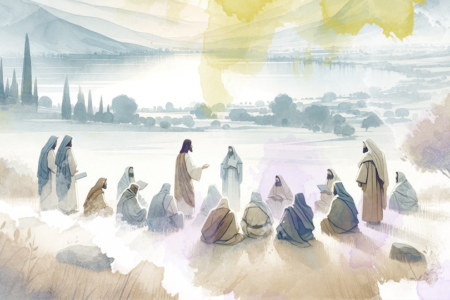One With God
Jesus possessed divine authority because He is divine. Some people say He never claimed to be God, but He stated His deity plainly: “I and My Father are one” (Jn. 10:30).
This oneness with God is best described as a unified whole. It’s a Hebrew concept found in the word echad, which appears in Deuteronomy 6:4: “Hear, O Israel: The Lord our God, the Lord is one [echad]!”
Echad is also used in other Hebrew Scriptures to denote a unified whole: “Therefore a man shall leave his father and mother and be joined to his wife, and they shall become one [echad] flesh” (Gen. 2:24). The Israelite spies Moses sent into Canaan “came to the Valley of Eshcol, and there cut down a branch with one [echad] cluster of grapes” (Num. 13:23).
Jesus told the disciples explicitly, “He who has seen Me has seen the Father” (Jn. 14:9). He even applied the divine name YHWH to Himself when He said, “Assuredly, I say to you, before Abraham was, I AM” (8:58; cf. Ex. 3:14; Mk. 14:62).
Scripture teaches that you cannot believe in one without the other: “Whoever denies the Son does not have the Father either; he who acknowledges the Son has the Father also” (1 Jn. 2:23)—which is why Psalm 2 tells us, “Kiss the Son, lest He be angry, and you perish in the way. . . . Blessed are all those who put their trust in Him” (v. 12).








